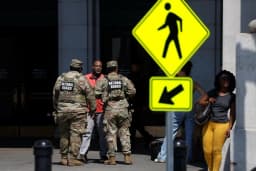




AGF Lateef Fagbemi
The federal government has said human traffickers make $245 billion annually.
The Attorney General of the Federation and Minister of Justice, Lateef Fagbemi, while quoting data from the International Labour Organisation (ILO) report, said $169.9b of the profit made annually was from sexual exploitation, and $75.9b from forced labour in the private sector, including domestic servitude.
He, however, noted that efforts by the National Agency for the Prohibition of Trafficking in Persons (NAPTIP) have led to the rescue of 25,642 victims and the arrest of 11,406 suspected traffickers.
He added that 750 convictions have been secured since the inception of NAPTIP.
He disclosed this in Abuja on Wednesday at the 28th National Stakeholders Consultative Forum to commemorate World Day Against Trafficking in Persons with the theme: “Human Trafficking is Organised Crime -End the Exploitation”.
Fagbemi, while stating that human trafficking cannot be addressed in isolation, called for joint efforts to combat human trafficking.
He said human trafficking affects the country’s national security negatively because Nigeria is a source, transit and destination country for trafficking.
He said: “Human trafficking is organised crime and transnational as it is planned and carried out by groups in a structured manner. It is a deeply coordinated criminal enterprise, and the primary goal of the perpetrators is economic gain from the exploitation of others, irrespective of who the victim is.
“Human traffickers attempt to insulate both their leadership and membership from detection, sanction, and prosecution through their organisational structure. This crime can be local, national or transnational and constitutes threats to persons and their families, Communities and nations. It is affecting our national security negatively as Nigeria is a Source, Transit and Destination country for trafficking.
“As an organised criminal activity with high profit and low risks, human trafficking is highly sophisticated, profit-driven, with an annual profit of over $245 billion US Dollars according to the ILO official report of 2023. A breakdown of this indicates US$169.9 billion for Sexual Exploitation; and US$75.9 billion from forced labour in the private sector, including domestic servitude”.
“Human trafficking remains a grave threat that undermines our nation’s human capital development, sponsors other forms of organised crime, fuels corruption, and intensifies the exploitation of innocent Nigerians, especially the most vulnerable among us”.
On efforts made to curb human trafficking, Fagbemi said President Bola Tinubu’s administration has rolled out expanded social investment programs targeting at-risk populations, including conditional cash transfers, youth employment schemes, and skills acquisition initiatives, to directly reduce the economic desperation that traffickers exploit.
He also said Nigeria has intensified efforts for mutual legal assistance with other countries, enabling more rigorous cross-border investigations, prosecution of traffickers, asset tracing, and confiscation of criminal proceeds.
He said the efforts would ensure traffickers no longer hide behind borders to enjoy their ill-got wealth.
On the arrest of and rescue, Fagbemi said: “I am impressed with the operational milestones recorded by the Agency from inception to date, with 25,642 victims rescued (of whom 73.8 per cent are females and 48.1% children), arrest of 11,406 suspected traffickers, and 750 convictions (comprising 469 males and 281 females).
“These strides are worth celebrating, considering the intricacies involved in obtaining a single conviction, in a highly sensitive and clandestine crime such as human trafficking”.
The Director-General of NAPTIP, Binta Bello, revealed that traffickers now entrap victims through a loan-for-sex trafficking scheme.
She said that through the scheme, unsuspecting women are deceived by fraudulent online loan offers.
According to her: “These women, often in desperate need of financial assistance, are trapped in cycles of exploitation when they are coerced into prostitution, or other forms of sexual exploitation under the pretext of repaying these non-existent debts. This method preys on economic vulnerability and is facilitated largely through unregulated digital platforms”.
Other forms traffickers use to exploit victims, according to the NAPTIP Boss, include the proliferation of fake job offers and scholarship scams.
She explained that traffickers masquerade as international employers or academic recruiters, enticing young people with promises of lucrative employment or fully-funded education abroad.
“Upon arrival in foreign countries, victims are stripped of their freedoms and subjected to forced labour or sexual exploitation. These deceptive tactics not only exploit the ambition and dreams of our youth but also undermine legitimate labour migration and international academic exchange”.
Bello, however, said measures are in progress for the operationalisation of the protocol for identification, safe return and rehabilitation of trafficked persons, which was approved by the Federal Executive Council in 2022.
She added that bilateral and multilateral Memoranda of Understanding (MoU) would be signed between Nigeria and key destination countries to curb the activities of traffickers.
The Country Representative of the United Nations Office on Drugs and Crime (UNODC), Mr. Cheikh Toure, said there is an urgent need for a centralised and real-time national data system that is accessible 5i all relevant agencies.
He explained that the data system was about mapping networks, targeting resources, and measuring impact with precision and not about counting victims. (The Nation)



























NEWS EXPRESS is Nigeria’s leading online newspaper. Published by Africa’s international award-winning journalist, Mr. Isaac Umunna, NEWS EXPRESS is Nigeria’s first truly professional online daily newspaper. It is published from Lagos, Nigeria’s economic and media hub, and has a provision for occasional special print editions. Thanks to our vast network of sources and dedicated team of professional journalists and contributors spread across Nigeria and overseas, NEWS EXPRESS has become synonymous with newsbreaks and exclusive stories from around the world.